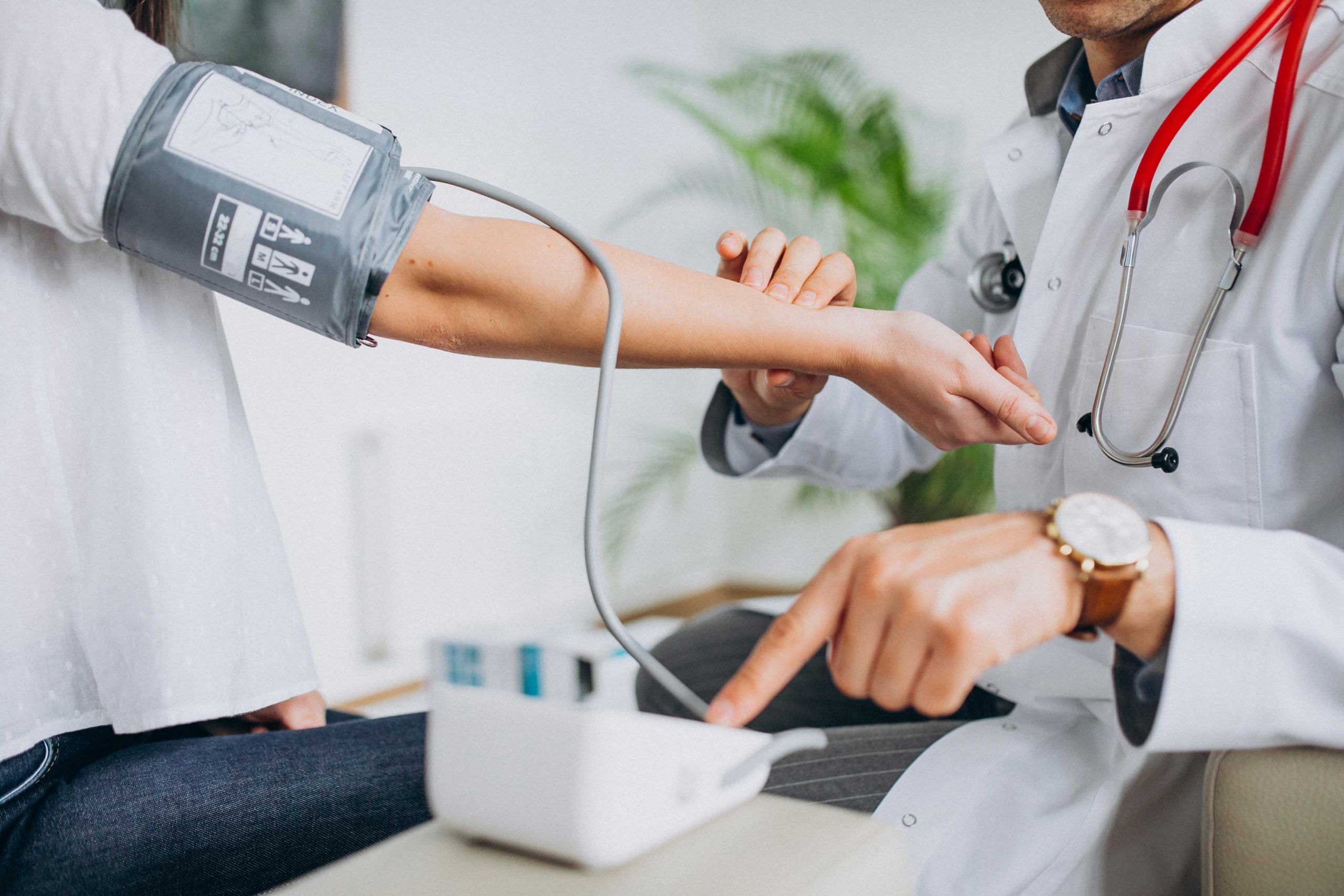Breaking the Tension
In the battle against hypertension, awareness and action are paramount. Double Helical brings you effective strategies, innovative solutions, and expert insights aimed at preventing and managing this silent yet deadly condition.
By Team Doublehelical
Hypertension, often referred to as the silent killer, occurs when the pressure in your blood vessels is too high, typically at 140/90 mmHg or higher. While common, it can lead to serious health complications if left untreated. Many individuals with high blood pressure may not experience any symptoms, making regular blood pressure checks crucial for early detection. Essentially, hypertension is synonymous with high blood pressure.

Dr Shridhar Dwivedi, Senior Consultant of Cardiology and Head of Academics at the National Heart Institute, New Delhi, highlights various factors that increase the risk of developing high blood pressure. These include older age, genetics, being overweight or obese, lack of physical activity, high-salt diets, and excessive alcohol consumption. Adopting a healthier lifestyle, such as improving dietary habits, quitting tobacco, and increasing physical activity, can help lower blood pressure for some individuals. However, others may require medication for effective management.
Blood pressure is measured using two numbers: the systolic number, which represents the pressure when the heart contracts or beats, and the diastolic number, which represents the pressure when the heart rests between beats. Hypertension is diagnosed when these readings consistently exceed 140 mmHg (systolic) and/or 90 mmHg (diastolic) on two separate occasions.
Modifiable risk factors for hypertension include unhealthy diets, physical inactivity, tobacco and alcohol use, and being overweight or obese. Non-modifiable risk factors include a family history of hypertension, age over 65 years, and co-existing diseases such as diabetes or kidney disease.
Detecting Hypertension: A Vital Step
Most individuals with hypertension do not experience symptoms. However, very high blood pressure levels can lead to symptoms such as headaches, blurred vision, chest pain, dizziness, difficulty breathing, nausea, vomiting, and abnormal heart rhythm. If you experience any of these symptoms along with high blood pressure readings, seeking immediate medical care is essential.
The only reliable method to detect hypertension is to have a healthcare professional measure your blood pressure. While individuals can measure their own blood pressure using automated devices, an evaluation by a healthcare professional is crucial for accurate assessment and management of hypertension. Regular blood pressure monitoring is quick, painless, and vital for identifying and managing this silent threat to health.
Managing Hypertension: A Comprehensive Approach
Implementing lifestyle changes is key to managing high blood pressure effectively. These changes include adopting a healthy, low-salt diet, achieving weight loss if necessary, engaging in regular physical activity, and quitting alcohol and tobacco use. However, for individuals with high blood pressure, medication may also be necessary. Your doctor will tailor your treatment plan based on your individual health conditions, aiming for a blood pressure goal of less than 130/80 mmHg if you have cardiovascular disease, diabetes, chronic kidney disease, or are at high risk for cardiovascular disease. For most people, the goal is to maintain a blood pressure below 140/90 mmHg.
Several common medications are available to help manage high blood pressure. ACE inhibitors such as enalapril and lisinopril relax blood vessels and prevent kidney damage. Angiotensin-2 receptor blockers (ARBs) like losartan and telmisartan also relax blood vessels and prevent kidney damage. Calcium channel blockers including amlodipine and felodipine also work to relax blood vessels. Additionally, diuretics like hydrochlorothiazide and chlorthalidone help eliminate excess water from the body, thereby lowering blood pressure.
It’s important to note that lifestyle changes remain crucial even if medication is required. These changes can significantly contribute to preventing and lowering high blood pressure.
World Hypertension Day: A Call to Action
Prof.(Dr.) Suneela Garg, Chair Programme Advisory Committee NiHFW, New Delhi said, “Theme of World Hypertension Day 17th May 2024 is, let us confront this silent killer, and motivate all to Measure your Blood pressure Accurately,Control it ,Live longer . On May 17th, World Hypertension Day serves as a reminder to confront this silent killer and promote awareness about the importance of monitoring blood pressure. With approximately one billion people worldwide living with high blood pressure, including 220 million in India alone, hypertension stands as the number one risk factor for heart disease, stroke, renal complications, and premature death. Regular blood pressure checks and timely treatment are essential for prevention and management.
Efforts to strengthen healthcare systems, including effective leadership, capacity building, financing, and supply chain management, are crucial for the prevention, control, and management of hypertension.
Promoting Health Strategies
Health promotion strategies for hypertension focus on lifestyle modifications such as adopting a heart-healthy diet with reduced salt intake, weight management, regular physical activity, moderation of alcohol consumption, and stress management techniques like yoga and meditation. These strategies not only have the potential to save lives but also offer significant economic benefits and contribute to advancing progress towards Sustainable Development Goals (SDGs).
Advancements in Digital Health
Innovations in digital health, including cuffless blood pressure sensors, wireless smartphone-enabled upper arm blood pressure monitors, mobile applications, and remote monitoring technologies, offer promising avenues for improving hypertension management and monitoring. Wearable trackers are gaining interest among medical professionals and patients alike for their potential to provide valuable health insights.
Future Directions
Continued research into the causes of hypertension and the development of treatments to improve blood pressure management are essential for preventing early deaths from cardiovascular diseases. There is a pressing need for research aimed at improving adherence to long-term cardiovascular medications. Initiatives like the India Hypertension Control Initiative (IHCI), a multi-partner effort involving governmental and non-governmental organisations, demonstrate the potential for scalable public health programs to yield significant improvements in blood pressure control, particularly in primary care settings. Industry collaboration is vital for scaling up interventions to reach every corner of society.

